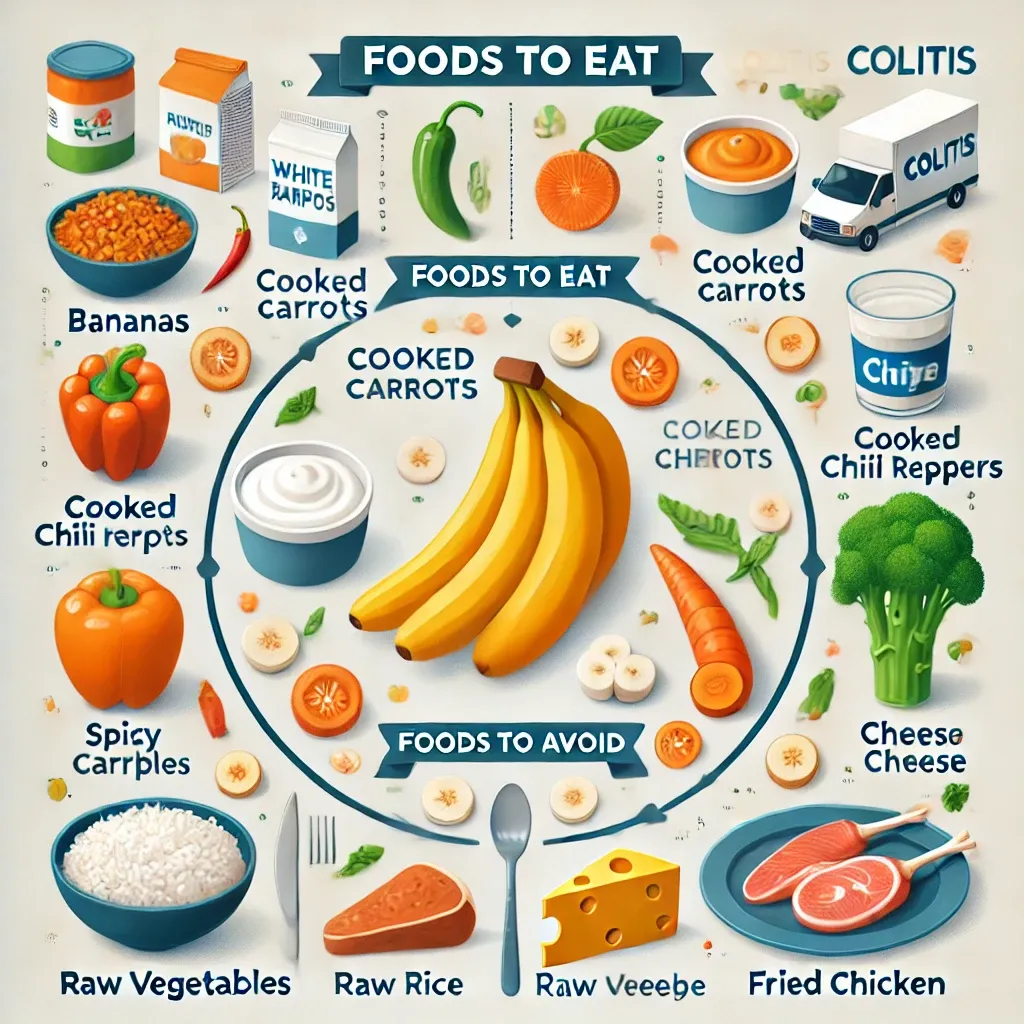Doctors Advise: Eat and Avoid These Foods to Manage Colitis
Managing colitis requires a balanced diet to reduce symptoms and prevent flare-ups. While some foods promote gut healing, others may worsen inflammation. Here’s a guide to making the best dietary choices for colitis management.

Foods to Eat
Including these foods in your diet may help ease colitis symptoms and promote better gut health:
1. Low-Fiber Fruits
Bananas, melons, and applesauce are gentle on the digestive system and less likely to irritate inflamed intestines. They provide essential vitamins without causing excessive bowel activity.
2. Cooked Vegetables
Steamed or boiled carrots, zucchini, and squash are easier to digest than raw vegetables. Cooking breaks down fiber, making these foods gentler on the digestive tract.
3. Lean Proteins
Skinless chicken, turkey, eggs, and fish like salmon provide essential nutrients and are less likely to trigger symptoms compared to fatty or fried meats.
4. Probiotic-Rich Foods
Yogurt with live cultures, kefir, and other fermented foods can help restore gut flora, improving digestion and reducing inflammation.
5. White Rice and Oatmeal
These easily digestible grains can help bind stools and reduce diarrhea during flare-ups. They’re also a good source of energy without irritating the gut.
Foods to Avoid
Certain foods can aggravate colitis symptoms, so it’s best to limit or eliminate them from your diet:
1. High-Fiber Foods
Raw fruits and vegetables, whole grains, and seeds can be too harsh on the inflamed gut, causing increased bloating, gas, or diarrhea.
2. Spicy Foods
Hot peppers, chili powder, and other spicy ingredients can irritate the digestive tract and exacerbate symptoms like cramping and diarrhea.
3. Dairy Products
Some individuals with colitis may have difficulty digesting lactose. Milk, cheese, and ice cream can lead to bloating, gas, and discomfort.
4. Fried and Fatty Foods
Greasy foods like french fries, fried chicken, and high-fat desserts can worsen symptoms by stimulating bowel activity and causing inflammation.
5. Caffeine and Carbonated Beverages
Coffee, tea, soda, and energy drinks can irritate the gut lining and lead to increased bowel movements, making symptoms harder to manage.
Additional Tips for Managing Colitis
- Stay Hydrated: Drink plenty of water to prevent dehydration, especially during flare-ups. Herbal teas and clear broths are also good options.
- Practice Portion Control: Smaller, frequent meals can help reduce the burden on your digestive system.
- Keep a Food Diary: Track what you eat and how it affects your symptoms to identify and avoid trigger foods.
- Consult a Dietitian: A registered dietitian can help create a personalized meal plan tailored to your specific needs and tolerances.

